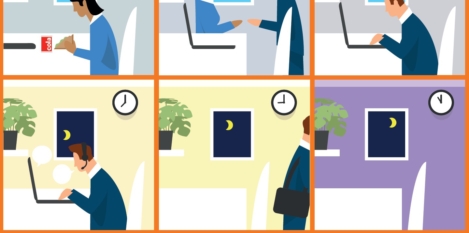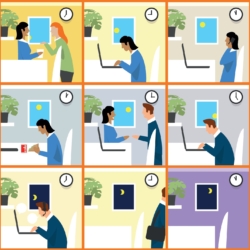To provide the best experiences, we use technologies like cookies to store and/or access device information. Consenting to these technologies will allow us to process data such as browsing behaviour or unique IDs on this site. Not consenting or withdrawing consent, may adversely affect certain features and functions.
The technical storage or access is strictly necessary for the legitimate purpose of enabling the use of a specific service explicitly requested by the subscriber or user, or for the sole purpose of carrying out the transmission of a communication over an electronic communications network.
The technical storage or access is necessary for the legitimate purpose of storing preferences that are not requested by the subscriber or user.
The technical storage or access that is used exclusively for statistical purposes.
The technical storage or access that is used exclusively for anonymous statistical purposes. Without a subpoena, voluntary compliance on the part of your Internet Service Provider, or additional records from a third party, information stored or retrieved for this purpose alone cannot usually be used to identify you.
The technical storage or access is required to create user profiles to send advertising, or to track the user on a website or across several websites for similar marketing purposes.
 Seniority in the workplace could be directly correlated to how often you listen to music whilst you work, claims a poll of 1,000 UK office workers. The research, which was carried out by London office developer CO—RE, suggests that business owners and C-suite executives were the most likely to listen to music in their working environment. (more…)
Seniority in the workplace could be directly correlated to how often you listen to music whilst you work, claims a poll of 1,000 UK office workers. The research, which was carried out by London office developer CO—RE, suggests that business owners and C-suite executives were the most likely to listen to music in their working environment. (more…)










 While city centres are taking time to recover, there’s better news elsewhere, suggests
While city centres are taking time to recover, there’s better news elsewhere, suggests 


 What impact is COVID-19 having on business confidence? And what recovery strategies are companies prioritising in response to the pandemic? Recruitment company
What impact is COVID-19 having on business confidence? And what recovery strategies are companies prioritising in response to the pandemic? Recruitment company 


 A new study by
A new study by 
















September 15, 2020
We are still overlooking the importance of air quality
by John Swift • Comment, Wellbeing, Workplace design